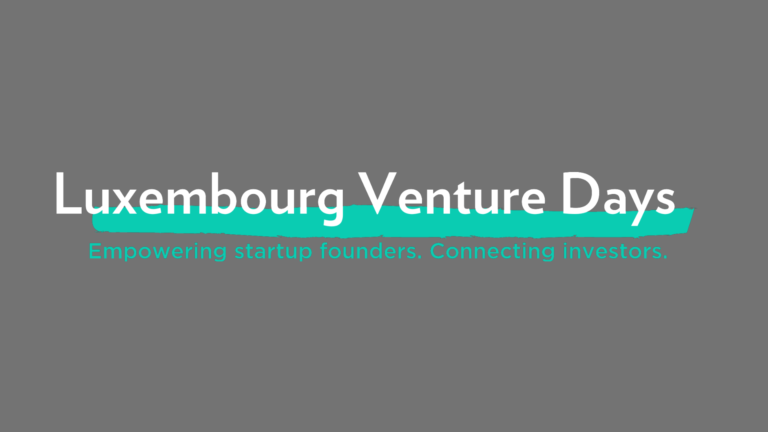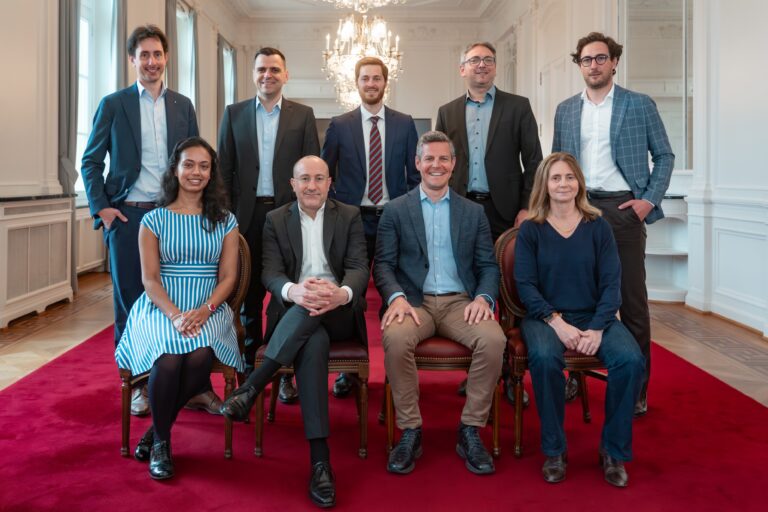by Solenne Niedercorn-Desouches, Finscale PodCast host and Independent Advisor.
Before the COVID19 crisis started, I was still supposed to visit Israel with my family and I had planned, as I do now systematically during my vacation, to visit the local “tech ecosystem”.
It is an enriching experience that gives a lot of satisfaction and allows me to understand who the different stakeholders and key players are and it gives a local flavour, thanks to the one2one meetings with founders, accelerators… And potentially allows me to record new episodes for my podcast Finscale.
Unable to physically do this, due to the quarantine, I finally decided to take this tour virtually, via Hangouts, Zoom and WhaptsApp. Inevitably, it is less user-friendly, however funnier considering that you share the daily life of complete strangers in a distant country: sharing a barbecue, meeting their children, visiting their living room…
The Tech Sector
Unsurprisingly, Israel is a very advanced country in the field of Tech. It is one of the most developed sectors in the country. In 2019, Israel was ranked 5th among the most innovative countries in the world by the Bloomberg Innovation Index. It ranks 13th in the world for scientific production, as measured by the number of scientific publications per million citizens.
Israel has 140 scientists and engineers per 10,000 employees, one of the highest ratios in the world. In comparison, there are 85 per 10,000 in the United States and 83 per 10,000 in Japan. Israel is home to major players in the high-tech industry and has some of the most literate populations in the world.
The ecosystem
Deloitte in its report on the local ecosystem lists more than 7,000 active startups per year and an economy dominated by high industrial technology and entrepreneurship, Israel clearly positions itself as a “StartUp Nation”.
The local Israeli state of mind is pioneering and the persons with whom I spoke have (necessarily) confirmed this.
The city where StartUps abound is clearly Tel Aviv. Founded in 1909, this city has 1 million daily commuters. It is a very competitive local ecosystem of StartUps, bringing together many talents in Tech and an open corporate culture.
Israel has a high quality education system and is one of the most educated societies in the world. As a result of compulsory military service, young people have already obtained advanced training technique during their military service and acquire a high sense of responsibility and an orientation towards success. Moreover, Unit 8200 is perhaps the most influential incubator in Israel, the Israel Defence Force as a whole has produced a number of founders and CEOs. Former soldiers of Unit 8200 have gone on to found many IT companies, among them: Viber, Palo Alto Newtorks, NICE…
In addition to this, Israel has experienced several waves of immigration from academics around the world. One of the most obvious reasons for leaders to turn to Israel for business is the creative, skilled and ambitious local workforce.
How they build this?
The government founded the Technology Incubator program in 1991. Today, there are more than 25 incubators (and 80 accelerators) across the country, all of which are private. Among these, we can mention the most famous ones:
- AshokaFellowship
- Campus Tel Aviv, joined project with Google for Startups
- AWS Floor28
- DRIVE FastLane Program
- eHealth Ventures– Incubator for MedTech StartUps
- Kamet Ventures – StartUp-Studio and platform for StartUp development
Incubators offer government funding of up to 85% of project costs at an early stage for two years. They feed the seed companies at the early stage, thereby minimising the risk to the investor. To date, more than 1,100 projects have come out of the incubators, of which more than 45% have managed to attract additional investment from different investors (Source: Deloitte).
As specified above, the first incubator for Cybersecurity is the army.
In addition, the Israel Innovation Authority offers a variety of support programs, with an annual budget of approximately $ 400 million. The main program is the R&D Fund, which offers R&D grants up to 40% of the cost of the approved R&D program.
Strict and competitive education
School is very particular in Israël due to the ranking of students years after years until the Baccalaureate. There is a huge competition (quite similar to what can be found in Asian countries such as South Korea). Only the best of the best students can choose a post-bac education (before starting their military service) where they learn a job at University (within accelerated courses, which has no equivalent in our European education system). Moreover, Israël is orienting students very early. Therefore University has completely reshaped research funding and created new scientific education poles.
Most Universities finance research of their students (mainly applied research) and incubate it very early in partnership with Private Companies. Universities thus finance themselves by royalties on the patents filed by their former students.
Last but not least, the University entry system is very egalitarian (some universities are chargeable but loans are possible and guaranteed by the State). Post-bac, students have to pass psycho-technical, mandatory for the entrance within Universities.
Tech sectors
Mainly B2B, the following Tech Sectors are very active:
- Cybersecurity
- HealthTech
- FinTech / InsureTech
- IA / Data
- Automotive / Smart City
- FoodTech
Breakthrough innovation in various sectors is rapidly changing the global business landscape, creating new challenges and opportunities for businesses. Traditional business models run the risk of becoming obsolete if they do not evolve at the same pace. Israel’s unique ecosystem is very successful in meeting the needs created by these constant changes.
FinTech map
Source: Viola Group (May / June 2020)
People you should follow
- Gon Ben David– Co-Founder & CEO at Roomer (TravelTech)
- Pini Yakuel– CEO at Optimove (Relationship Marketing Hub)
- Avishai Abrahami– CEO & Co-founder at com (Cloud bassed CMS)
- Nir Zohar– COO & President at com (Cloud bassed CMS)
- Yifat Oron– CEO at LeumiTech (Financial “home” of Israeli high-tech)
- Yaron Galai– Outbrain Co-Founder & CEO (Web advertising platform )
- Aviad Maizels– Executive & Founder at Bionauts Lab (HealthTech)
- Kira Radinsky– ChairWoman & Chief Technology Officer at Diagnostic Robotics (HealthTech)
- Tzahi Weisfeld– General Manager Ignite: Intel for StartUps
- Eyal Miller– Vice President & Managing Director, Samsung Next TLV
- Tamar Yaniv– CEO + Co Founder at Me (Marketing Platform)
- Jeremie Berrebi (40 under 40 most promising people 2012 by TheMarker – Israel)
What were the biggest funding rounds last year?
VCs are indeed very active in Israel. Here are the biggest Israeli funding rounds for Israeli StartUps in 2019:
- Lemonade(InsureTech) raised $ 300 million
- com(Work Monitoring / Automation) raised $ 150 million
- Cybereason(Cybersecurity) raised $ 200 million from SoftBank
- The Fintech Fundboxstartup raised a $ 176 million Series C round
- Lightricks(Content creation App’) has raised a $ 135 million Series C round
- Hippo(InsureTech) raises $100 million in Series D funding led by Bond
- Trax(Image recognition) raised $ 100 million
- SentinelOne(Cybersecurity) raised $ 120 million
VCs to know
- OurCrowd
- Qumra
- Glilot Capital
- Aleph
- 83 North
- Pitango Venture Capital
- Viola Ventures
- iAngels
- Jerusalem Venture Partners
- Vertex Ventures Israel
- TLV Partners




